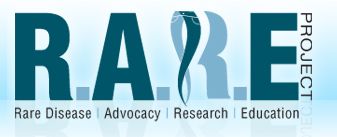FOR IMMEDIATE RELEASE: (Click here for .pdf of Press Release)
For further information, please contact:
Robin Yegelwel
Marketing & PR Coordinator
marcus evans
455 N. Cityfront Plaza Dr., 9th Floor
Chicago, IL 60611
(312) 540-3000 ext. 6483
Alnylam Pharmaceuticals, BioMarin Pharmaceutical Inc., and Cytonet Set to Speak on Conducting Effective Orphan Drug Research
Barbara Wuebbels, R.N., M.S., Oved Amitay, and Rod Monroy, Ph.D. set to speak at the Premier marcus evans Life Cycle of Orphan Drug Development & Commercialization Conference
Boston, MA – September 19, 2012 – marcus evans, a world leading provider of strategic conferences is pleased to introduce the Life Cycle of Orphan Drug Development & Commercialization Conference, January 16-18, 2013 in Boston, Mass.
The orphan drug and rare disease industry is one of the hottest topics in modern day medicine. “A unique set of patients with rare diseases and severe unmet medical needs exists; it is essential to have people and companies dedicated to develop therapeutic agents to improve the quality of life for these patients,” said Rod Monroy, Ph.D., Senior Director, North American Clinical Operations at Cytonet. With blockbuster drugs coming off patent, there is a great need for pharmaceutical companies to diversify their portfolios by exploring niche markets. The increasing presence of high-profile manufacturers in the orphan drug industry provides these companies with this opportunity.
Orphan drug development has several advantages including faster clinical trials, better odds for approval with an 82% success rate, attractive profitability, given the smaller patient populations, and ongoing revenue growth.
While the orphan drug market offers an attractive future for the pharmaceutical industry, it is not without challenges, which include clinical trial end points and lack of biomarkers and difficulty identifying patients. “Finding key opinion leaders and funding the clinical trial are two of the major challenges in orphan drug development,” said Barbara Wuebbels, Associate Director, Patient Advocacy & Investigator Relations at BioMarin Pharmaceutical Inc.
Growing regulatory issues and demands, a changing reimbursement environment, and outdated distribution models add uncertainty and increase the financial risks. “As we continue to drive scientific innovation to the benefit of patients we need to work with other stakeholders on evolving the commercial paradigms to ensure sustainable long-term success,” said Oved Amitay, Vice President and Head of Commercial at Alnylam Pharmaceuticals.
The Life Cycle of Orphan Drug Development & Commercialization Conference will focus on the current landscape of rare disease and orphan drug development, different forms of structural based drug designs, and specifically designed clinical trials. Through these clinical trials, and by having connected to the right patients to participate, will increase productivity and expedite orphan drug approval and commercialization of the final product.
For more information regarding this conference and to register, please visit http://www.marcusevansch.com/LCOD2012_PR or contact Robin Yegelwel, Marketing & PR Coordinator, at (312) 540-3000 ext. 6483 or RobinY@marcusevansch.com.
About marcus evans
marcus evans conferences annually produce over 2,000 high quality events designed to provide key strategic business information, best practice and networking opportunities for senior industry decision-makers. Our global reach is utilized to attract over 30,000 speakers annually; ensuring niche focused subject matter presented directly by practitioners and a diversity of information to assist our clients in adopting best practice in all business disciplines.
###









